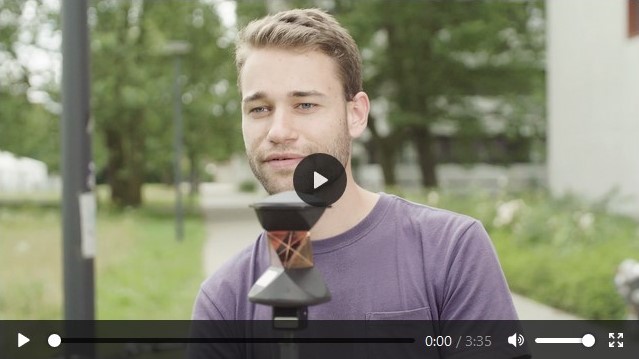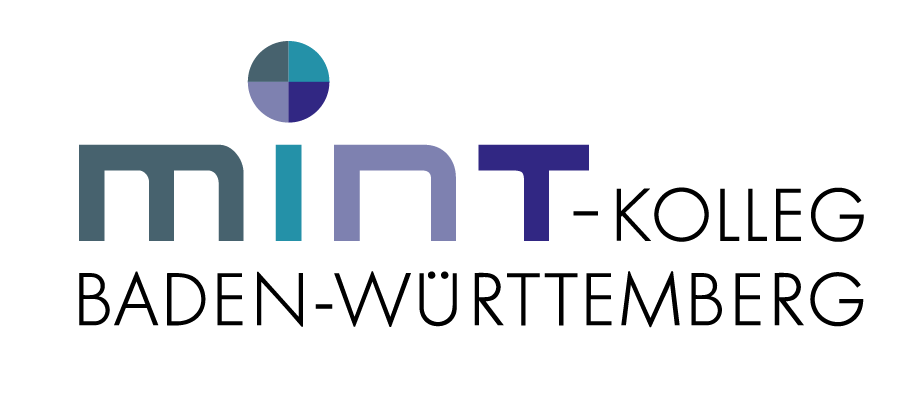Degree: Bachelor of Science (B.Sc.)
Regular program length: 6 semester (full-time program)
Credit points (ECTS): 180 credit points
Language of instruction: German
Higher semester: no
Higher semester: winter and summer term
First semester: September 15
Higher semester: September 15 for winter term, March 15 for summer term
First semester: July 15
Higher semester: July 15 for winter term, January 15 for summer term
Studiengangsbeschreibung
Worum geht’s?
Im Studiengang Geodäsie und Geoinformatik beschäftigst du dich mit der Vermessung der Welt – genauer gesagt mit modernen Methoden und Instrumenten der Erhebung, aber auch der Qualität raumbezogener Daten und deren Abbildung. GPS, Augmented Reality, Maschinensehen, Künstliche Intelligenz und vieles mehr - in einem ausgewogenen Theorie-Praxis-Verhältnis vermittelt dir das Bachelorstudium das Handwerkszeug, um in vielen Bereichen beruflich einzusteigen oder ein Masterstudium anzuschließen.
Geodisziplinen wie Geodäsie und Geoinformatik zählen zu den wichtigen Zukunftstechnologien und tragen schon heute durch die gewonnenen Daten zu politischen oder wirtschaftlichen Entscheidungen grundlegend bei. Für einen nachhaltigen Umgang mit den Ressourcen der Erde und die Analyse von Naturereignissen wie Vulkanausbrüchen, Erdbeben und Massenbewegungen ist das Heranziehen von Geoinformationen unumgänglich.
Geodäsie bildet dabei die Basis: Sie macht es möglich, die Erde präzise zu vermessen – vom einzelnen Grundstück bis zu ganzen Kontinenten. Dafür kommen moderne Satellitentechnik, Sensoren und digitale Karten zum Einsatz.
Die Geoinformatik sorgt dafür, dass die riesigen Datenmengen, die dabei entstehen, digital verarbeitet, verknüpft und visualisiert werden – oft in 2D oder 3D und mit Hilfe künstlicher Intelligenz. So entstehen digitale Abbilder der realen Welt, die z. B. für Stadtplanung, Katastrophenschutz oder Verkehrsmanagement genutzt werden. Auch webbasierte Karten- und Informationssysteme sind Teil davon.
Du solltest gute Kenntnisse in Mathematik mitbringen und Interesse an der Gewinnung und Verarbeitung von Daten – also Informatik – haben.
Program structure
During your studies, you have various subjects, which consist of one or more modules. A module deals with a specific topic and consists of one or more courses. In the module handbook for your degree program, you will find a description of the modules and their subject assignment as well as a study plan. This gives you an orientation as to which courses you should attend in which semester in order to complete your studies within the standard period of study. It takes into account a balanced distribution of courses over the individual semesters. It also ensures that you are first taught the important basics before moving on to more advanced topics. Your individual course of study may differ from this.
Im Studiengang Geodäsie und Geoinformatik besteht dein Studienplan aus diesen Fächern:
- Mathematisch-Physikalische Grundlagen: Experimentalphysik, Differentialgeometrie und Mathematik vermitteln dir die notwendigen naturwissenschaftlichen Grundlagen.
- IT und Geoinformatik: Du lernst Wesentliches über Informatik und Datenverarbeitung, Datenbanken und konkrete Anwendungen der Geoinformatik.
- Vermessungskunde und Geodätische Sensorik: Du erarbeitest dir die Grundlagen des Vermessungswesens und führst eigene Messungen durch. Außerdem lernst du die relevantesten Sensoren und ihre situationsspezifische Anwendung kennen.
- Photogrammetrie, Fernerkundung und Computer Vision: Hier geht es um die dreidimensionale Erfassung von Koordinaten aus Bildern.
- Geodätische Referenzsysteme und Raumverfahren: Du lernst beispielsweise die Funktionsweisen von Satellitenmethoden oder eines Gravimeters kennen und führst eigene Messungen durch.
- Kartographie und Landmanagement: Hier geht es unter anderem um Rechtsgrundlagen der amtlichen Vermessung, aber auch der Immobilienwirtschaft und Bodenpolitik.
Stays abroad
KIT offers a wide range of options for stays abroad, from individual courses to a year abroad. Especially if you are interested in a longer stay abroad, it is advisable to contact the International Students Office early on.
Der deutsch-französische Doppelstudiengang „Geodäsie und Geoinformatik/Topographie“ wird am KIT in Kooperation mit der INSA Strasbourg angeboten. Der internationale Doppelstudiengang bietet dir die einmalige Möglichkeit, einen Auslandsaufenthalt von drei Semestern am Stück durchzuführen und neben dem deutschen Abschluss (Master) auch ein französisches Diplom zu erhalten. Der Ablauf ist hier wie folgt: Du besuchst das 1.–4. Semester im Bachelor-Studiengang „Geodäsie und Geoinformatik“ am KIT, anschließend studierst du im 5.–7. Semester an der INSA und die Semester 8 bis 11 verbringst du wieder im Master-Studiengang "Geodäsie und Geoinformatik" am KIT.
Bachelorarbeit
Am Ende deines Bachelorstudiums fertigst du deine Bachelorarbeit an, eine wissenschaftliche Arbeit, die es dir ermöglicht, dein erlangtes Wissen und deine Fähigkeiten anzuwenden und zu vertiefen. Normalerweise behandelt sie ein spezifisches Thema in deinem Studienfach und erfordert eigenständige Forschung, Analyse und das Verfassen einer schriftlichen Ausarbeitung. Die Bearbeitungsdauer der Bachelorarbeit beträgt sechs Monate.
Weitere Informationen
Außer dem Modulhandbuch ist unsere Studiengangbroschüre eine nützliche Informationsquelle. Sie behandelt auch Themen wie Bewerbungsverfahren, Studieneinstieg und Berufsperspektiven.
Qualification profile of the graduate
In the Bachelor's degree program, the scientific foundations and the methodology competence in the area of geodesy and geo-informatics are provided. The goal is to acquire the ability to successfully graduate in a Master's degree program, as well as to apply the acquired knowledge in professional areas.
The graduates of the Bachelor's degree program geodesy and geo-informatics have knowledge in the basics of processing and analysis of temporal and spatial data, as well as technical, methodical, and legal knowledge in geodesy and geo-informatics. Further, they have insight in most professional areas for geodesists. Based on their wide knowledge, they can name and describe advanced questions in geodesy and geo-informatics. They have well-founded knowledge about and methods for knowledge acquisition, in order to become acquainted with advanced questions.
They are able to independently analyze basic survey problems and implement practical solutions. They can implement algorithms of geo-informatics as well as apply essential methods for analyzing temporal and spatial data, as well as develop solutions for specific problems in their area of expertise. The graduates have the ability to collect simple relevant information, to analyze and evaluate it, and are able to become acquainted independently with simple topics and problems, as well as overview, analyze, interpret and evaluate them. They are able to work on a given concrete problem in a self-organized and solution oriented way. They can classify area-specific problems and choose suitable methods for acquiring measurement data, and for analyzing and evaluating them.
They know how to document, bring together, illustrate and interpret the obtained results. They are able, after an introduction, to work independently or in a team, to argue in area-related terms, and are able to discuss their arguments with and defend them in front of experts and lay people. The practical handling of specific knowledge occurs under consideration of societal, scientific and ethic aspects.
Berufsperspektiven
Mit einem Abschluss in Geodäsie und Geoinformatik hast du beste Chancen auf einen abwechslungsreichen und vielfältigen Arbeitsplatz. Der Mangel an Fachkräften ist in diesem Bereich aktuell groß. Typische Arbeitsbereiche sind
- Öffentliche Verwaltung
- Ingenieur- und Planungsbüros
- Selbstständige Tätigkeit als öffentlich bestellter Vermessungsingenieur oder Vermessungsingenieurin
- EDV-Dienstleistung
- Herstellung geodätischer Instrumente
- Automobilindustrie
- Automationstechnik
- Forschung und Lehre
Im Öffentlichen Dienst beschäftigen vor allem Behörden folgender Zuständigkeitsbereiche Spezialisten aus der Geodäsie und Geoinformatik:
- Landesvermessung
- Kommunale Vermessungs- und Versorgungsunternehmen
- Katasterwesen und Flurneuordnung
- Bundesamt für Kartographie und Geodäsie
- Straßenbau
- Wasser- und Schifffahrtsverwaltung
Um eine Anstellung im höheren vermessungstechnischen Verwaltungsdienst zu erreichen, musst du nach dem Masterabschluss einen 18-monatiger Vorbereitungsdienst (=Referendariat) absolvieren.
Tätigkeiten im Bereich der Ingenieurvermessung sind unter anderem:
- Planung und Leitung von Vermessungen im Gelände
- Durchführung von vermessungstechnischen Aufgaben bei der Planung, Absteckung, Überwachung und Rekonstruktion von Bauwerken (Verkehrswege, Brücken, Talsperren, Kraftwerke, Industrieanlagen, Wohn- und Gesellschaftsbauten)
- Mitarbeit bei Umweltverträglichkeitsprüfungen
- Vermessung von Grundstücken zur Sicherung des Grundeigentums
Auch der weiterhin stark expandierende IT-Bereich bietet dir Jobmöglichkeiten wie in der Softwareentwicklung und im GIS-Bereich. Im Vordergrund steht hier die Erfassung und Verwaltung raumbezogener Geodaten sowie die Erstellung und Nutzung von Geoinformationssystemen in den Bereichen Verwaltungs-, Verkehrs- und Versorgungsmanagement, bei Umwelt- und Sicherheitsaufgaben, bei Energieversorgern und Banken sowie für Freizeit und Tourismus.
Besonderheiten des Studiengangs
Besonderheiten von Geodäsie und Geoinformatik B.Sc. am KIT
- Interdisziplinäre Ausrichtung, insbesondere mit Anbindung an Informatik und Geowissenschaften
- Vorbereitungs- und Unterstützungskurse im MINT-Kolleg
- Kleiner, familiärer Studiengang - exzellente Studiensituation
- Hoher Praxisanteil (Übungen, Projektbearbeitung)
- Enger Kontakt zu Lehrenden und wissenschaftlichem Personal
- Lehre: Mitwirkung bei Forschungsvorhaben und Ingenieurprojekten
- Zugang zum deutsch-französischen Doppelabschluss (INSA Strasbourg)
- Fachbezogene Nebenjobs am Institut oder innerhalb der Uni
Das bietet dir das KIT
- zentraler Campus im Grünen, direkt an der Innenstadt
- Orientierungsphase vor Beginn der Vorlesungen
- 24h-Bibliothek mit Einzel- und Gruppenarbeitsplätzen
- breites, günstiges Verpflegungsangebot (Mensa, Cafeteria, Koeri- und Pizzawerk)
- zahlreiche überfachliche Angebote zur persönlichen und beruflichen Weiterentwicklung, z.B. Lern-, Schreib- und Perspektivenlabor
- Auslandsstudium z.B. über Erasmus
- ausgezeichnetes Hochschulsportangebot mit einer großen Auswahl an Sportarten
- umfassendes kulturelles Angebot mit Uni-Orchestern, -Chören und -Theatergruppen
- umfangreiche Unterstützung für den Berufseinstieg und die Selbstständigkeit
- Lernräume-App
- international ausgerichtete Studiengänge und vielfältige Austauschprogramme
- moderne Labore und praxisnahe Lehrmethoden
- vielfältige studentische Initiativen, Vereine und Möglichkeiten zur aktiven Mitgestaltung des Campuslebens
- nach dem Studium in Kontakt bleiben über das Alumni-Netzwerk
Zugangsvoraussetzungen und Sprachnachweise
Hochschulzugangsberechtigung (HZB)
Deutsche und Deutschen Gleichgestellte (d.h. EU/EWR-Staatsangehörige sowie Nicht-EU/EWR-Staatsangehörige mit deutscher Hochschulreife) sind zum Studium am KIT berechtigt, wenn sie eine der folgenden Qualifikationen vorweisen können:
- Allgemeine Hochschulreife (Abitur)
- (einschlägige) Fachgebundene Hochschulreife (nicht Fachhochschulreife)
- Deltaprüfung der Universität Mannheim (für Inhaberinnen und Inhaber einer Fachhochschulreife)
- eine anerkannte berufliche Aufstiegsfortbildung (z.B. Meisterin und Meister) oder Berufsausbildung, Berufserfahrung und Eignungsprüfung für beruflich Qualifizierte
Weitere Möglichkeiten siehe §58 Landeshochschulgesetz.
Bitte beachte: Deutsche Staatsangehörige mit ausländischem Schulabschluss müssen sich vom zuständigen Regierungspräsidium die Gleichwertigkeit ihres Abschlusses mit dem deutschen Abitur bescheinigen lassen.
Für Nicht-EU/EWR-Staatsangehörige mit ausländischem Schulabschluss (im Folgenden auch vereinfacht: Nicht-EU/EWR-Staatsangehörige) gilt, dass aus einigen Ländern das Schulabschlusszeugnis als direkte Hochschulzugangsberechtigung in Deutschland anerkannt ist. In vielen Fällen muss aber zusätzlich zum Schulabschluss noch eine Hochschulaufnahmeprüfung und/oder ein erfolgreiches Studienjahr im Heimatland und/oder die deutsche Feststellungsprüfung mit gültigen Dokumenten nachgewiesen werden, um in Deutschland ein Bachelorstudium aufnehmen zu dürfen. Die länderspezifischen Regelungen kannst du in der Zulassungsdatenbank des DAAD oder auf der Seite Anabin (nur in deutscher Sprache) der Zentralstelle für ausländisches Bildungswesen (ZAB) nachlesen. Weitere Informationen erhältst du beim International Students Office.
Sprachvoraussetzungen und -nachweise
Für den Bachelorstudiengang Geodäsie und Geoinformatik benötigst du ausreichende Kenntnisse der deutschen Sprache, welche mindestens dem Niveau C1 des Gemeinsamen Europäischen Referenzrahmens für Sprachen (GER) entsprechen.
Nachweis ausreichender Deutschkenntnisse
Als Nachweis für deine Deutschkenntnisse genügt deine Hochschulzugangsberechtigung (HZB),
-
wenn du sie an einer deutschsprachigen Schule im In- oder Ausland erworben hast,
-
wenn du Absolventin oder Absolvent einer bilingualen Sekundarschule im In- oder Ausland bist und eine bilinguale Deutschprüfung abgelegt hast, wie z.B. das AbiBac oder das Gemischtsprachige International Baccalaureat (GIB) oder
-
wenn du deinen Abschluss zwar an einer ausländischen Schule gemacht hast, mit dem jeweiligen Land aber eine sonstige offizielle Übereinkunft über die Anerkennung deines Schulabschlusses oder Sprachzeugnisses als Sprachnachweis für ein Hochschulstudium in Deutschland besteht.
Eine vollständige Liste der ausländischen Schulabschlüsse und Sprachzeugnisse, die als Nachweis ausreichender Deutschkenntnisse anerkannt sind, findest du auf der Webseite der Kultusministerkonferenz.
Hast du deine Hochschulzugangsberechtigung nicht an einer deutschsprachigen Einrichtung erworben, musst du - unabhängig von deiner Staatsangehörigkeit - einen gesonderten Sprachnachweis erbringen. Akzeptiert werden dabei ausschließlich
- der bestandene „Prüfungsteil Deutsch“ der Feststellungsprüfung,
- die bestandene DSH mit dem Gesamtergebnis DSH-2,
- die bestandene TestDaF-Niveaustufe 4 in allen vier Prüfungsteilen (Leseverstehen, Hörverstehen, Schriftlicher Ausdruck, Mündlicher Ausdruck) oder
- ein vergleichbares, anerkanntes Zertifikat über ausreichende Deutschkenntnisse.
Um in Erfahrung zu bringen, welche weiteren anerkannten Zertifikate vom KIT als vergleichbar akzeptiert werden können, wendest du dich
- als deutsche oder Deutschen gleichgestellte Bewerberin oder Bewerber an den Studierendenservice
- als Bewerberin oder Bewerber mit Nicht-EU-Staatsangehörigkeit an das International Students Office
Please note:
Language certificates are extremely important application documents that can prevent your enrollment if you do not submit them on time. Therefore, check early on in the application process whether you have the necessary language certificates for your degree program and, if necessary, plan to take one of the language tests mentioned above. The deadline by which you must submit language certificates corresponds to the enrollment deadline stated in your admission offer. In justified cases, you can apply for an extension of this deadline. The extension can be granted until the start of the lecture period at the latest.
Weitere notwendige Voraussetzungen für die Immatrikulation
Für Deutsche und Deutschen Gleichgestellte ist eine weitere notwendige Voraussetzung für eine Immatrikulation der Nachweis über die Teilnahme an einem Studienorientierungstest (z.B. unter www.was-studiere-ich.de) oder einer studienorientierenden Beratung gemäß §7 Landeshochschulgesetz, z.B. durch die Zentrale Studienberatung (ZSB) des KIT. Nicht-EU/EWR-Staatsangehörige müssen diesen Nachweis nicht führen.
Application portal
Application for the 1st semester
Application for a higher semester
Study preparation
Prepatory courses at KIT: The MINT-Kolleg offers prospective and first-year students support in natural science and technical subjects (STEM).
In addition, the KIT-Departments offer special preliminary courses before the start of the semester program during the "O-Phase" (orientation week).
Support during your start at KIT
The KIT offers support for all first-year students in order to have a successful start of their studies. Numerous orientation events and mentoring programs at the KIT-Departments help students to make friends, orientate themselves and find support where needed. The central online portalstudienstart.kit.edu is a first guide to all important offers, brings together all relevant information and contains helpful hints for a successful start of your studies:
- advisory centers
- mentoring programs
- info sessions
- workshops
- extensive online information
Contacts
Student advisor
Student advisory services (ZSB)


Karlsruher Institut für Technologie (KIT)
Zentrale Studienberatung (ZSB)
Engelbert-Arnold-Str. 2
76131 Karlsruhe
Karlsruher Institut für Technologie (KIT)
Studierendenservice
Kaiserstr. 12
76131 Karlsruhe
First point of contact for international applicants
Karlsruher Institut für Technologie (KIT)
International Students Office (IStO)
Adenauerring 2
76131 Karlsruhe
Printed matter
Module handbook
Statutes and regulations
Teaching calendar
WT 2024/25
10-21-2024 to 02-15-2025
ST 2025
04-22-2025 to 08-02-2025
WT 2025/26
10-27-2025 to 02-21-2026
ST 2026
04-20-2026 to 08-01-2026
WT 2026/27
10-26-2026 to 02-20-2027
ST 2027
04-19-2027 to 07-31-2027
WT 2027/28
10-25-2027 to 02-19-2028
ST 2028
04-18-2028 to 07-29-2028
Lectures will not take place:
- From 12-24 to 01-06
- the week after Pentecost
- on all public holidays in the state of Baden-Wuerttemberg









